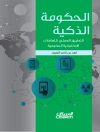Learn the facts about recycling and discover the best way to make an impact
Recycling is a simple action we can take that has an immediate positive effect. It keeps waste out of landfills, conserves natural resources, prevents pollution, and saves energy. Who wouldn’t want to do this? But recycling isn’t always straightforward. With so many different rules, it can be tough to work out the right thing to do. If you’re worried that you’re not recycling properly, or wondering whether you could be recycling more, this is the book for you.
Recycling For Dummies cuts through the confusion around what you can and can’t recycle. This easy-to-follow manual breaks down recycling codes, symbols, and rules in a straightforward way that anyone can understand and apply. You’ll gain insight into the recycling process (where does that stuff go, anyway?) and learn tons of tips on reusing items in your daily life to cut down on waste. It also guides you on how to make smarter choices as a consumer to help preserve the planet for generations to come.
* Figure out what common materials can and can’t be recycled
* Understand what the recycling symbols are telling you
* Explore the many specialist recycling services available
* Learn what happens to your recyclables after they get picked up
* Become a true recycler by switching to recycled products
Check out this book if you want to make your efforts count and be part of the recycling solution.
Jadual kandungan
Introduction 1
Part 1: Getting Started with Recycling 5
Chapter 1: Reviewing the Elements of Recycling 7
Chapter 2: Getting to Know Your Waste 19
Chapter 3: Understanding the Problem with Waste 29
Chapter 4: Making Sense of Recycling 53
Part 2: Grasping Curbside Recycling 77
Chapter 5: Conquering the Basics of Curbside Recycling 79
Chapter 6: Deciphering Curbside Plastic Recycling 103
Chapter 7: Mastering Paper and Cardboard Recycling 133
Chapter 8: Recognizing Recyclable Glass 155
Chapter 9: Identifying Metals and Where to Recycle Them 177
Chapter 10: Making Sense of Multilayer Materials 201
Part 3: Finding Solutions in Specialist Recycling 211
Chapter 11: Starting with Soft Plastics 213
Chapter 12: Composting to Reduce Food Waste 233
Chapter 13: Exploring E-Waste Recycling Solutions 251
Chapter 14: Scouting Other Recycling Programs 275
Part 4: Knowing That Recycling Won’t Save the Planet on Its Own 287
Chapter 15: Changing Our Behaviors for the Sake of Future Generations 289
Chapter 16: Buying Recycled: Supporting Brands Turning Trash into Treasure 303
Chapter 17: Highlighting Other Ways to Get Involved 317
Chapter 18: Considering the Future of Recycling 329
Part 5: The Part of Tens 341
Chapter 19: Ten Recycling Myths Debunked 343
Chapter 20: Ten Things You Thought You Couldn’t Recycle but Can 347
Chapter 21: Ten Things That Don’t Belong in Your Curbside Recycling Bin 353
Appendix: Waste Audit Worksheets 359
Index 363
Mengenai Pengarang
Sarah Winkler is an avid environmentalist with a science and project management background who loves sharing her passion for recycling. She is the creator of Everyday Recycler, an educational website that promotes good recycling behaviors and sustainable purchasing habits.












